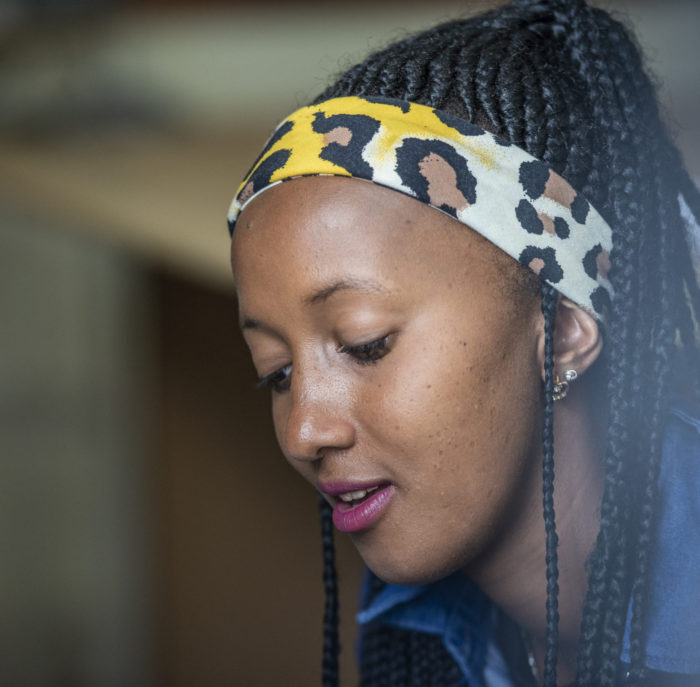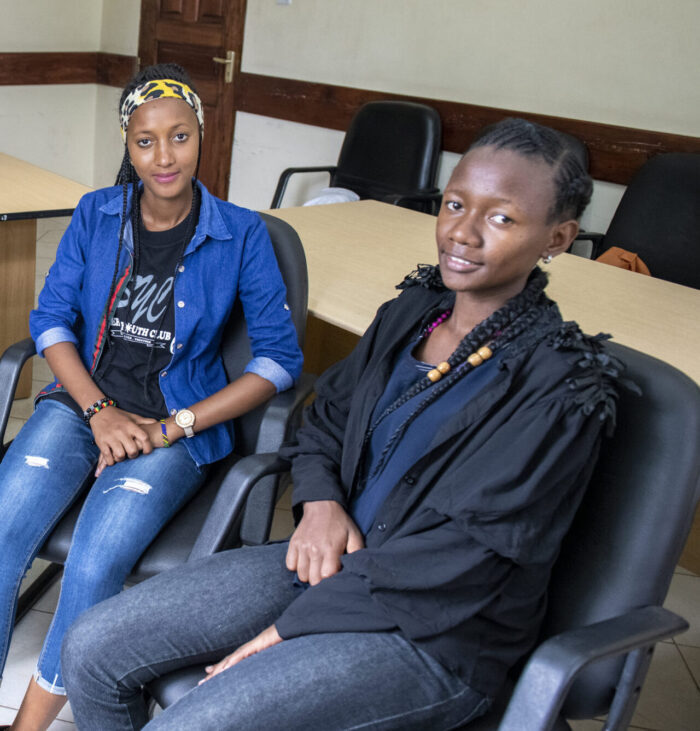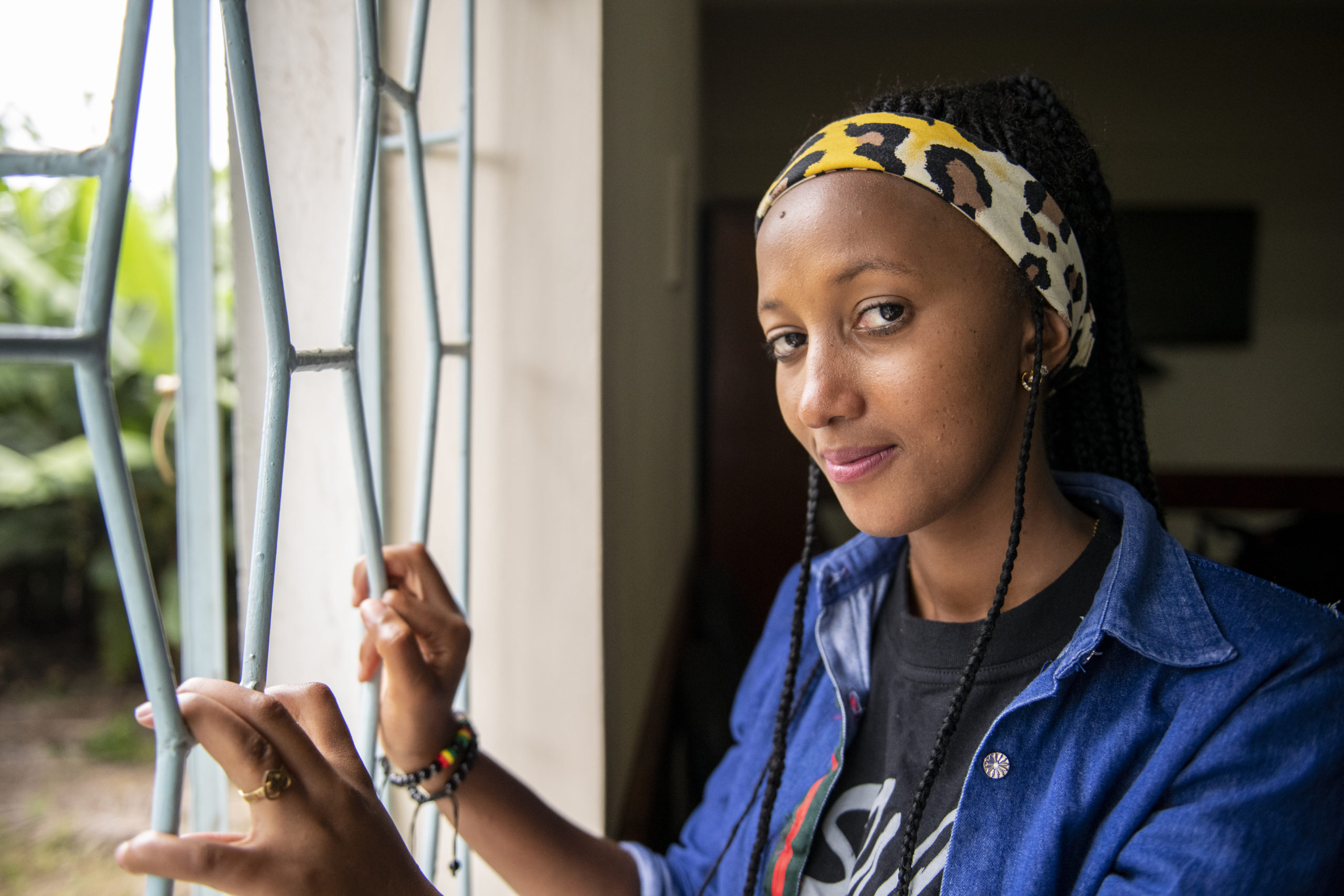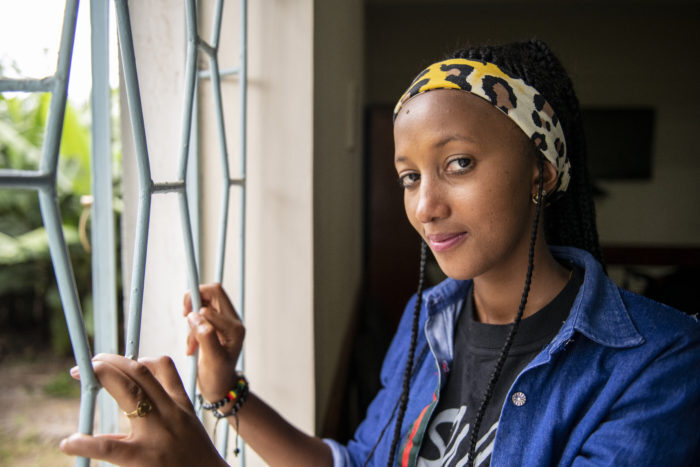 “It all started when I was a baby,” says Jane Emmanuel, a 21-year-old living in Arusha, Tanzania. “My mother made sure I took a pill every day and told me that the pills were for my headache. As I was young and naïve, I faithfully took the pills without any questions. After completing my primary school education I joined a boarding secondary school. My mum instructed the teachers at the school to continue giving me the pills every day.
“It all started when I was a baby,” says Jane Emmanuel, a 21-year-old living in Arusha, Tanzania. “My mother made sure I took a pill every day and told me that the pills were for my headache. As I was young and naïve, I faithfully took the pills without any questions. After completing my primary school education I joined a boarding secondary school. My mum instructed the teachers at the school to continue giving me the pills every day.
“One day, during my biology class in one of the books I was reading, I saw a pill that looked exactly like the one I was taking. I was astonished to learn that the pills were for HIV. I Googled the name of the drug and the results confirmed my suspicions. It didn’t take much effort to fill the gaps and realize I was living with HIV.
“At that moment, it felt like the world had stopped for me. I confronted my mother, but she still was not ready to tell me the truth at that time. I remember seeing tears roll down her cheeks. After some time she gathered courage. She told me I am HIV-positive, but also she gave me hope. She told me this was not the end of my life and assured me that I could still pursue my life’s dreams. Despite the assurance, life was never the same for me.
She told me I am HIV-positive, but also she gave me hope. She told me this was not the end of my life and assured me that I could still pursue my life’s dreams. Jane Emmanuel, Youth Activist
“Things took a different turn, when a few months later, I was introduced to the Ariel Teen Club at St. Elizabeth Hospital in Arusha. I met my fellow peers who were also HIV-positive like me. Unlike me, they oozed with positive energy and hope. I slowly began to accept who I am and refused to be defined by my HIV status. Not only have we found hope at the teen club, but we also engage in entrepreneurship activities such as printing and selling T-shirts and USB flash drives.”
Jane is just one out of the 780 adolescents who are enrolled in the 15 teen clubs in Arusha, which support youth ages 10-19 who are living with HIV. The clubs address the psychological and clinical needs of adolescents so that they feel confident, stay on treatment, and prevent transmission of the virus to their own present or future partners or children.

“The peer support they get from the clubs attract them to attend their next visit, to socialize, and to share experience with other peers,” says Theopista Massenge, pediatric and adolescent advisor for the Elizabeth Glaser Pediatric AIDS Foundation (EGPAF), which sponsors and supports the clubs.
A teen club evaluation study revealed that young people attending clubs were three times more likely to remain on treatment compared to those who were not attending such clubs.
While these teen clubs usually meet twice a month, many of the youth—especially the leaders like Jane—generally come to the hospital every day and volunteer their time to the hospital. They work closely with healthcare workers to identify and follow up on patients who have missed appointments, counsel individuals who have just learned of their status, and otherwise help the busy healthcare workers with their daily tasks. Through the teen club, Jane and her peers also reach out to other youth living with HIV to ensure they take their antiretroviral medication to suppress the HIV virus.
Young people living with HIV attending peer support clubs are three times more likely to remain on treatment.
Although Jane was determined that HIV would not define her, she still faced emotional challenges when she was not in the company of her HIV-positive peers.
“I remember when in secondary school a teacher announced publicly to fellow students that I was HIV-positive,” Jane recalls. “My life turned hellish. I was discriminated against in the dormitory and everywhere.
“But the words from my mum that told me to be strong helped me turn the misfortune into a fortune—to stand for myself and educate others so, instead of discriminating against me while they don’t know their status, they too can seek to know their status,” Jane says.
Jane realized that someone might be gossiping about her HIV status behind her back. She took that opportunity to talk to that person one-on-one and disclose her HIV status while also educating about HIV. Education, Jane points out, helps people understand that HIV is nothing to be ashamed of. If people understand HIV transmission, treatment, and prevention, they will find no reason to fear those living with HIV.
Now Jane is a peer leader in her Teen Club at St. Elizabeth Hospital. She also belongs to EGPAF’s Committee of African Youth Advisors, which connects young leaders across several the continent to discuss HIV-related issues that young people face and work together on solutions. “I learned from my peers who are engaging with their leaders and influencing positive changes in their areas,” she says.
Jane remains energized and hopes to make a difference in her own community. She visited her village elder and asked for support to start a group for young people with HIV. The village elder agreed, and while she endured a lot of discrimination, over time her efforts helped to reduce the stigma associated with HIV.
“I am so proud of the model Jane has become,” says Jane’s mother. “She is a great role model to others and an anti-stigma champion.”
Ariel Teen Clubs in Tanzania are supported by EGPAF through the USAID Boresha Afya Project in partnership with EngenderHealth and the Ministry of Health, Community Development, Gender, Elderly and Children (MOHCDGEC).





